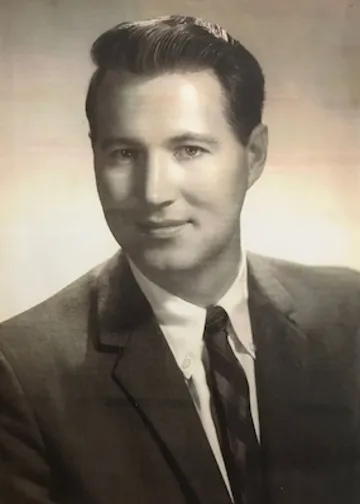Cecil Jones, Jr., influential emeritus theatre professor, has died
Cecil Jones, Jr., professor of theatre, emeritus, who taught at Vanderbilt for 29 years, died on March 18 in Nashville. He was 92.
 Born in Nashville, he completed his undergraduate education at Vanderbilt, graduating with a bachelor of arts in 1951. He went on to earn his master’s degree from Northwestern University in 1952 and a Ph.D. from the University of Illinois in 1959. His teaching career began in Texas and then at Washington and Lee University in Virginia before joining Vanderbilt in 1965. He retired in June 1994, having inspired generations of students during his tenure.
Born in Nashville, he completed his undergraduate education at Vanderbilt, graduating with a bachelor of arts in 1951. He went on to earn his master’s degree from Northwestern University in 1952 and a Ph.D. from the University of Illinois in 1959. His teaching career began in Texas and then at Washington and Lee University in Virginia before joining Vanderbilt in 1965. He retired in June 1994, having inspired generations of students during his tenure.
“He was loved and cherished by the countless students he taught during his 29 years, many of them going on into some form of entertainment,” said Jon Hallquist, professor of theatre, emeritus. “All of them were greatly influenced by his undying example of dedication, loyalty, and good citizenship.”
Many former students kept in touch with Jones well after graduation. During the pandemic, they maintained contact with each other and Jones through weekly Zoom calls. This past fall, Jones attended the Vanderbilt performance of Antigone with several alumni with whom he had remained close.
“It was through him that I first began to feel that I had value, and because of him a world of art opened up for me that eventually became part of my livelihood and a constant source of joy,” said Mark Ketterson, BA’76. “He taught me the importance of reverence for that art.”
Jones was fondly remembered for creating a family atmosphere in the theatre department, demonstrating great patience with his students but also holding them to a high standard in their production roles.
“His praise had to be earned and his criticism was direct and on-target, and we all learned from both of those,” said Karen Frost, BA’76. “When you heard his stentorian voice calling your name, you knew you had best get up there right away. He was also quick to laugh with his students and created an atmosphere that made everyone want to be there.”
Jones’ infectious enthusiasm for theatre was underscored by an expert level of knowledge about all aspects of direction and production.
“As a director, Dr. Jones was straightforward and very hands-on,” said Harry Murphy, BA’78, who went on to an acting career. “You were to be on time for rehearsals and prepared for what you had to do, period. You were expected to do your best, and woe to anyone who misbehaved while we were working. He set a standard for behavior that I still follow to this day, one that has helped to guide my professional career. This is not to say that we didn’t have a good time as well, though. Dr. Jones had a sly wit and enjoyed a good joke as much as anyone.”
Jones was instrumental in bringing a black box theatre to Vanderbilt, which was state-of-the-art in the mid-1970s. Many theatre professionals from across the country visited in hopes of emulating its design.
“Cecil had an enormous impact on the department,” said Phillip Franck, chair of the Department of Theatre. “He was the prime mover behind having Neely Auditorium converted from its original configuration as a chapel to the theatre that it is now. He directed the first production (A Streetcar Named Desire by Tennessee Williams) when Neely opened in its new form in fall 1976.”
Jones is preceded in death by his wife, Jane Ellen Jones, parents, Cecil and Allie Jones, and brother, David S. Jones. He is survived by his daughter, Margaret Fergus, and numerous nieces, nephews, and cousins.
A memorial service will be held at Calvary United Methodist Church at 1 p.m. on April 4. In lieu of flowers, donations may be made to your choice of theatres in his name, or to Calvary United Methodist Church, where he was a founding and active member.
